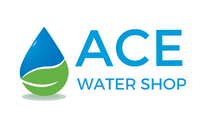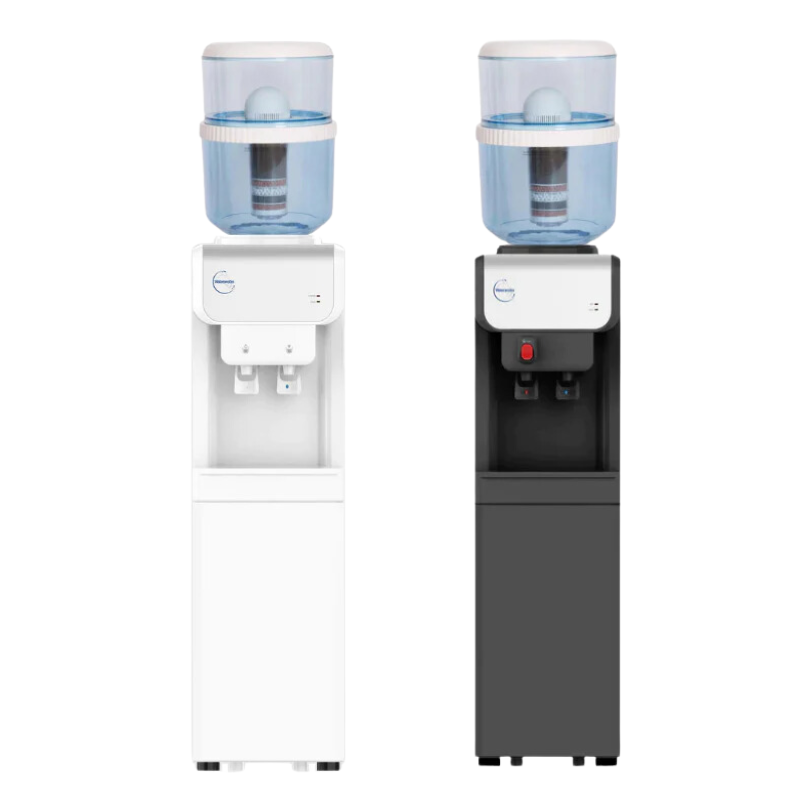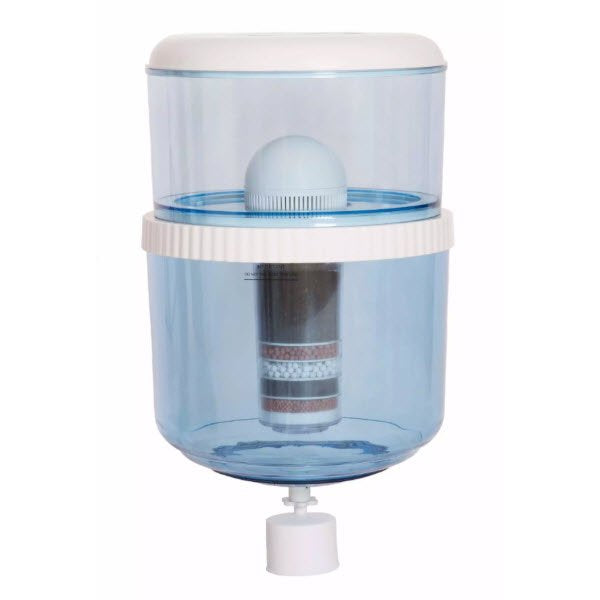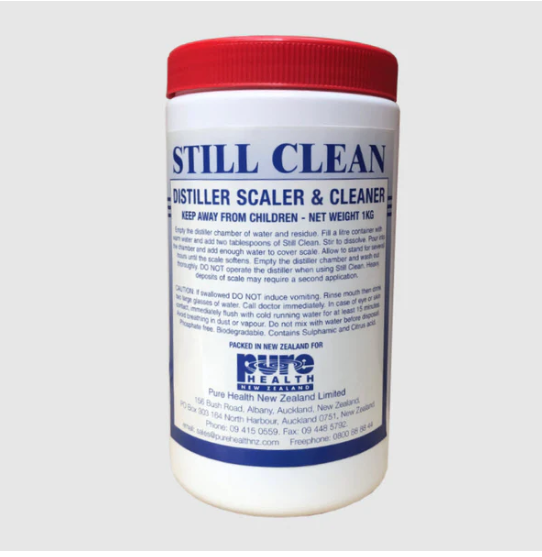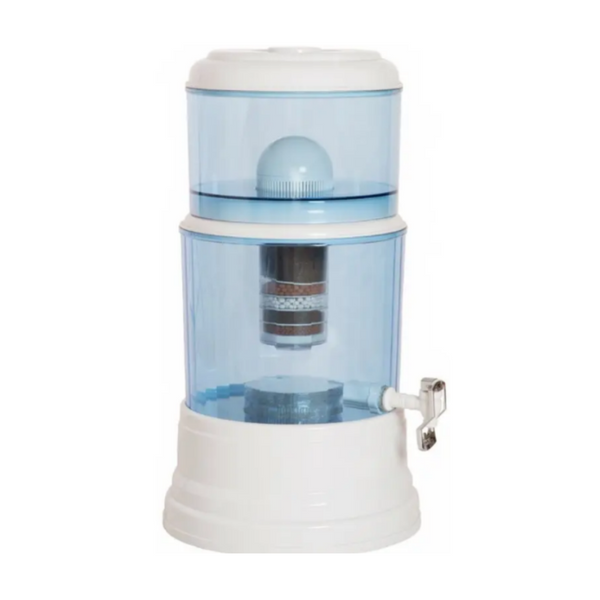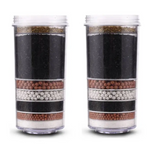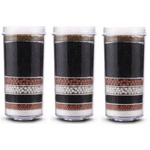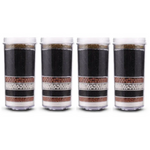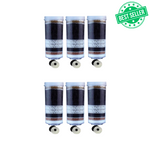You have no items in your shopping cart.
Every day, you shower, wash dishes, do laundry, and hydrate yourself, but have you ever stopped to think about the quality of the water you're using? All water is not created equal, and the hardness or softness of your water can significantly affect your daily life. Today, we'll delve into the world of hard water, how it impacts us, and how to combat it.
What is Hard Water?
Simply put, hard water is water that contains a high level of minerals, particularly calcium and magnesium. These minerals are not harmful to ingest, but their presence can lead to various problems in your home and appliances. The hardness level of water can vary based on geographical location and the water source, be it wells, rivers, or municipal water supplies.
Impact of Hard Water
Hard water is more than just an inconsequential detail; it has a tangible impact on several aspects of your daily life:
1. Skin and Hair Health: The minerals in hard water can dry out your skin and hair. They can leave a soapy residue, preventing moisture absorption and making your skin feel tight and your hair dull and lifeless.
2. Plumbing and Appliances: The mineral deposits from hard water, also known as scale, can build up in pipes, reduce water flow, and shorten the lifespan of appliances like washing machines, dishwashers, and water heaters.
3. Cleaning and Laundry: Hard water can make it difficult for soap and detergent to dissolve correctly, leading to ineffective cleaning and potential soap scum build-up. Your clothes may look dull or feel stiff after washing.
The Environmental Aspect of Hard Water
Addressing the environmental impact of hard water presents another angle to our understanding of its broader implications.
1. Increased Detergent Usage: Hard water reduces the effectiveness of soaps and detergents. This inefficiency often leads to increased usage of these products, which can contribute to water pollution when they flow down the drain and eventually reach our waterways.
2. Energy Efficiency: Appliances working with hard water need to work harder and longer, increasing energy consumption. This heightened usage isn't just bad for your utility bills, but it also contributes to increased greenhouse gas emissions.
3. Water Wastage: Due to reduced effectiveness of soaps and detergents, households with hard water often end up using more water for washing and cleaning purposes, contributing to water wastage.
Combatting Hard Water - The Solutions
While hard water may seem like a formidable foe, it's not invincible. Here are some effective strategies to combat it:
1. Water Softeners: The most common solution to hard water is installing a water softener system. These units work by using ion exchange technology to swap hard water ions (calcium and magnesium) with softer ones (like sodium).
2. Descalers: Descaling agents can help break down the mineral scale that hard water leaves behind. Regular use can help protect your appliances and extend their life.
3. Water Conditioners: Unlike water softeners that replace hard water ions, conditioners alter the structure of the minerals so they can't stick to surfaces, reducing scale build-up.
4. Filtered Water Jugs: For drinking water, filtered jugs can help remove hard water minerals, providing you with softer, better-tasting water.
5. Regular Cleaning: Regularly cleaning areas prone to hard water stains (like showers and sinks) can help manage the effects of hard water.
Understanding the Importance of Regular Maintenance
Maintaining your water treatment systems can make a significant difference in their lifespan and efficiency.
1. Regular System Checks: Frequent inspections help detect any potential issues early, preventing significant problems and costly repairs in the future.
2. Replacing Filters: For systems like water softeners and filtered water jugs, replacing filters at regular intervals is crucial to ensure optimal performance.
3. Professional Servicing: Regular professional servicing can also help enhance the efficiency and longevity of your water treatment systems.
4. Descaling Appliances: Regular descaling can extend the lifespan of your home appliances and maintain their efficiency.
Preventive Measures Against Hard Water
While treating hard water is the most effective way to deal with its problems, certain preventive measures can also help reduce its impact.
1. Rainwater Harvesting: Rainwater is naturally soft. By harvesting and utilizing it for non-drinking purposes like watering plants, washing cars, or flushing toilets, you can reduce the demand for hard water.
2. Using the Right Cleaning Products: Some cleaning products are designed to work better in hard water. Using such products can help you clean effectively without using excess water or detergent.
3. Regularly Cleaning Taps and Showerheads: Hard water can cause scale build-up on taps and showerheads, reducing water flow. Regular cleaning can prevent this.
Take Action with Ace Water Shop
At Ace Water Shop, we understand the challenge hard water presents and are dedicated to providing you with comprehensive solutions. Our range of top-quality water softeners, conditioners, descalers, and filtered jugs are designed to provide you with softer water for a healthier lifestyle and more efficient home.
Hard water may be an everyday challenge, but it's one that can be successfully managed with the right knowledge and tools. At Ace Water Shop, we're dedicated to helping you navigate this challenge and improve your water quality.
Don't let hard water dictate the quality of your life or the lifespan of your appliances. Browse our range of products and solutions at Ace Water Shop and take the first step toward a softer, better water future today.
Remember, every drop counts, so let's make sure each one contributes to a better, healthier lifestyle. Hard water may be hard, but combatting it doesn't have to be. Explore Ace Water Shop and conquer hard water today!
